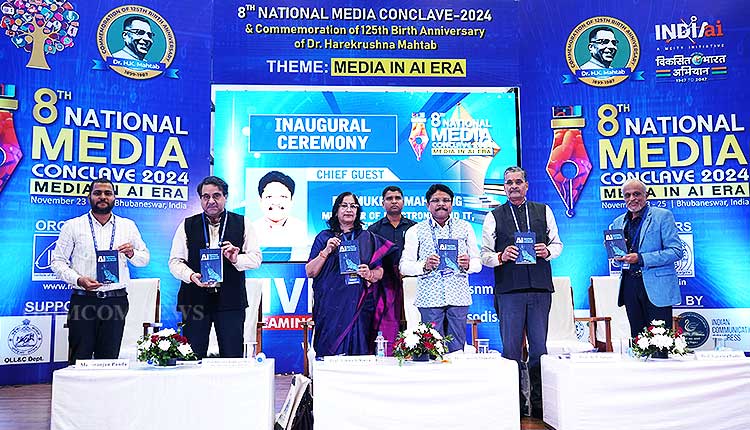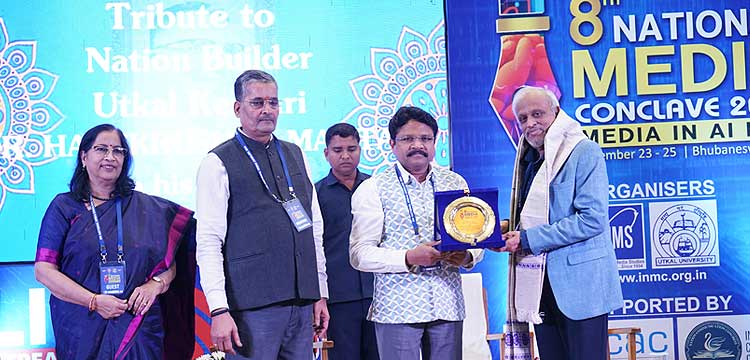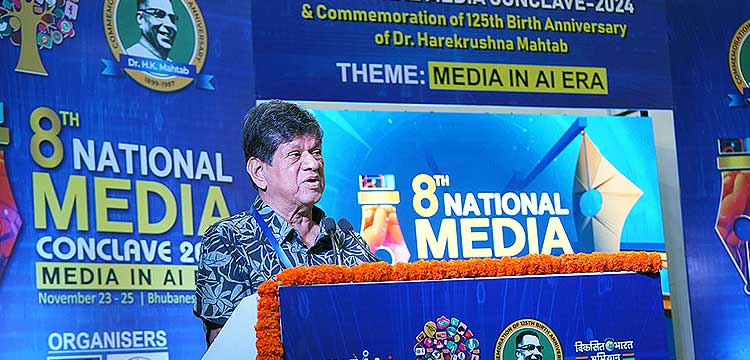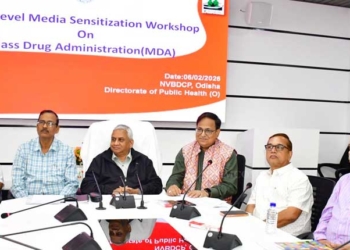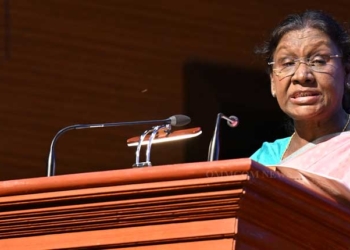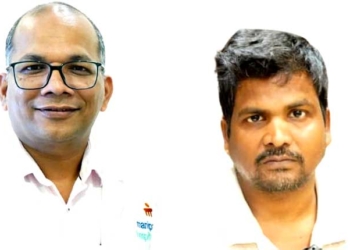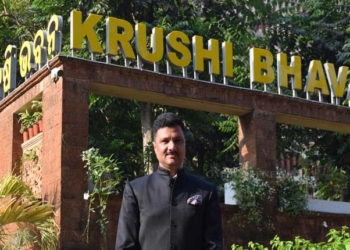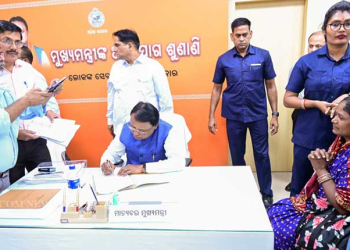Bhubaneswar: The eighth edition of the National Media Conclave (NMC), themed “Media in the AI Era,” began on Saturday, bringing together some of India’s leading minds in media, communication, and governance. Held at the KIMS Auditorium on KIIT campus, the event explored the transformative impact of Artificial Intelligence (AI) in journalism, academics, and governance.
Organized by the Institute of Media Studies (IMS), Utkal University, in collaboration with KIIT and ICSSR, the three-day conclave also paid tribute to Odisha’s former Chief Minister and journalist Dr Harekrushna Mahatab, commemorating his contributions to Indian journalism and Odisha’s development.
During the inaugural session, Dr Mukesh Mahaling, Minister of Electronics, IT, and Health, announced the establishment of India’s second Forensic Science University in Odisha. The university will include AI-based programs to address cybercrime. He stated that Prime Minister Narendra Modi would lay the foundation stone for the institution on November 30.
Highlighting the potential of AI, Dr Mahaling said, “Artificial Intelligence is revolutionizing media and communication while significantly contributing to GDP growth. India is poised to develop one of the world’s most efficient AI talent pools.”
Prof Sabita Acharya, Vice Chancellor of Utkal University, chaired the session and emphasized that generative AI is reshaping media production and distribution globally. She urged for a balance between AI-driven efficiency and human creativity, stating, “Even researchers are leveraging AI for their work, but human touch remains essential.”
Prof BP Sanjay, who delivered the opening remarks, called for integrating AI into Journalism and Mass Communication (JMC) curricula, adding that Indian context and values should guide its adoption.
Prof. Debashis Bandopadhyay, Pro-Vice Chancellor of KIIT University, added, “AI can democratize media by enabling broader access and participation.”
A plenary session focused on the contributions of Dr. Mahatab, with notable speakers highlighting his fearless journalism and literary excellence. Soumya Ranjan Patnaik, Chairman of the Sambad Group, called him “a rare blend of journalist and statesman,” while journalist Ruben Banerjee underscored his relevance in today’s journalism landscape.
Sandeep Sahu, a senior journalist, praised Dr. Mahatab’s impactful column Gaon Majlis, written in a style accessible to common people. Prof. K.G. Suresh suggested translating Gaon Majlis into multiple languages to incorporate it into media education.
The event also featured the release of a monograph titled “Digital Media and Technology: Indian Binaries” and an abstract booklet of 60 research papers, which will be presented in parallel sessions. Prof. BP Sanjay received a Lifetime Achievement Award for his contributions to media education.
Two plenary sessions focused on the government’s AI initiatives and industry perspectives, while a memorial lecture was delivered by Press Council of India member Prof. Baldev Raj Gupta.
The conclave will conclude on Monday with additional discussions on AI’s role in governance and a closing ceremony graced by ministers and eminent media educators.
The National Media Conclave, described as the country’s largest media event, reaffirms Odisha’s growing prominence as a hub for AI innovation and academic excellence in the digital era.




